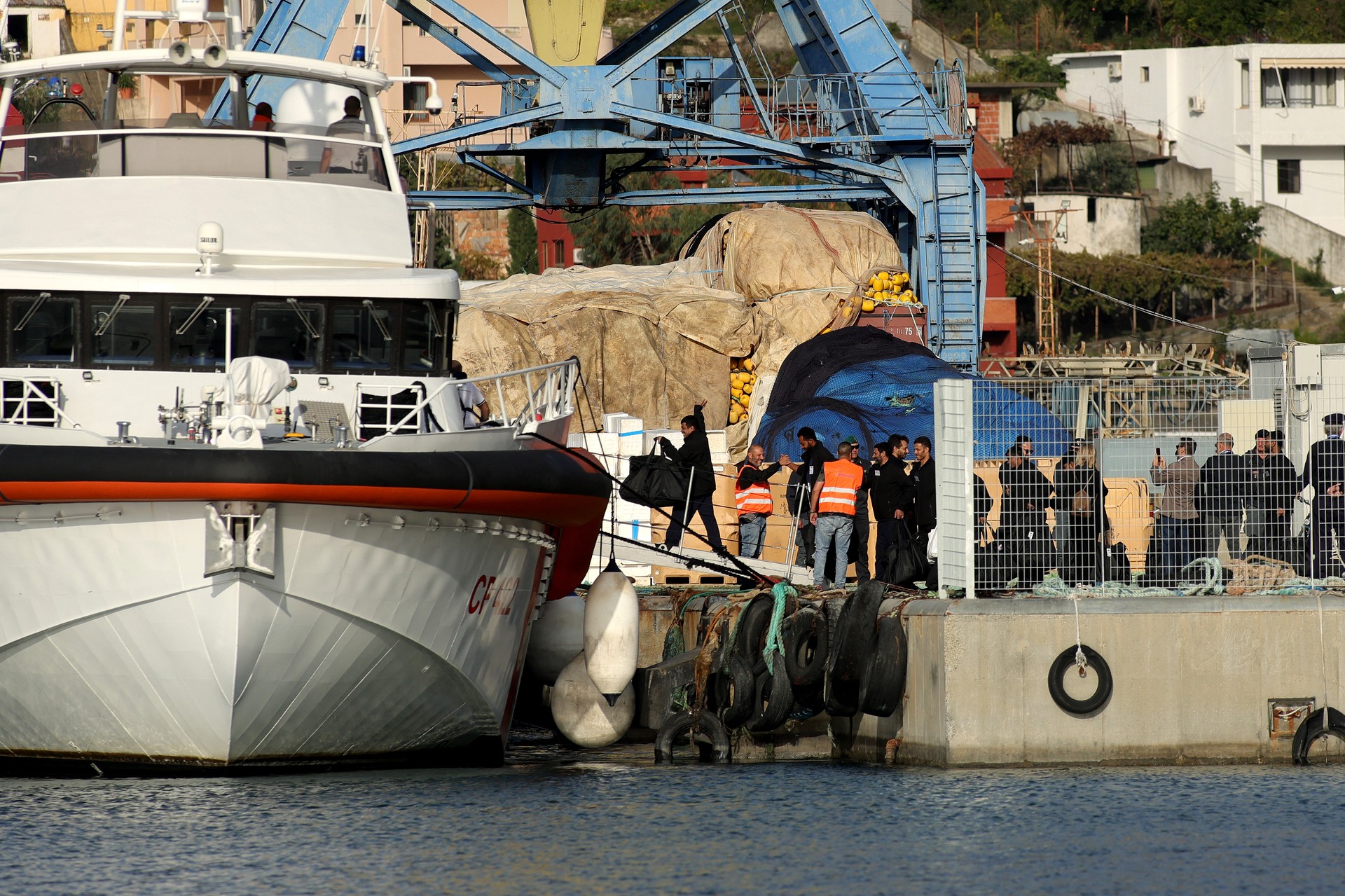
Twelve Bangladeshi and Egyptian men returned to Italy from Albania on Saturday after an Italian court ruled against their detention under a controversial agreement between Rome and Tirana.
The group was part of 16 migrants who arrived in Albania on Wednesday, nearly a year after Italy signed a deal with Albania to house asylum seekers in Italian-managed centers in the non-EU country while their cases are processed by Italian courts. The agreement, signed in November by far-right Italian Prime Minister Giorgia Meloni and Albanian Prime Minister Edi Rama, was designed to ease Italy's overwhelmed immigration system.
The deal, which is expected to cost €160 million ($175 million) annually over five years, allows male asylum seekers intercepted by Italian authorities in international waters to be transferred to Albania. From there, authorities would determine whether the individuals are from "safe" countries, allowing for expedited deportations.
However, a ruling by the European Court of Justice prompted Italian judges to reject the detention of the first group of migrants, stating the men did not meet the criteria for detention in Albania and must instead be transferred to Italy.
On Saturday, the 12 men, who had been held at a temporary reception center in Albania, boarded an Italian coast guard vessel at the port of Shengjin, heading for Brindisi in southern Italy. Four other men from the group, identified as "vulnerable," had already been sent back to Italy earlier in the week.
Italy's Interior Minister Matteo Piantedosi announced that Rome would appeal the court's decision. Meanwhile, Prime Minister Meloni reiterated her commitment to curbing illegal immigration, stating on social media, "Italians have asked me to stop illegal immigration, and I will do everything possible to keep my word."
The controversial deal has faced sharp criticism from opposition parties and human rights groups. Irene Tinagli, a member of the European Parliament from Italy's center-left Democratic Party, called the initiative "ridiculous and useless," adding, "To think one can manage the influx of migrants by sending a few of them to Albania is ridiculous."
The deal’s effectiveness has also been questioned as Italy continues to see a significant number of migrants arriving by sea. More than 55,000 people have crossed the Mediterranean to Italy so far this year, compared to 140,000 during the same period in 2023, according to the Italian Interior Ministry.
The expansion of Italy's list of "safe" countries of origin to 22 nations has also been met with concern. Human rights groups argue that some of the designated countries include regions that are not universally considered safe, raising questions about the protection and rights of asylum seekers in Albania.
The European Court of Justice ruling now stipulates that EU member states can only designate entire countries as safe, rather than parts of a country, further complicating Italy’s migration policies.